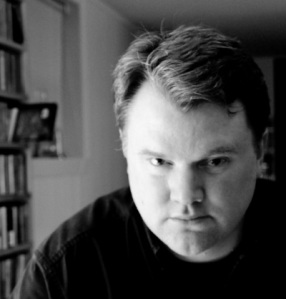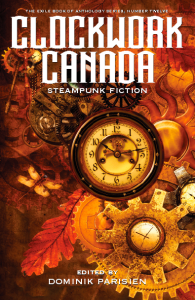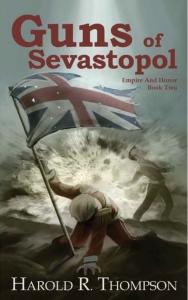Welcome back to our chat with Harold R. Thompson, author of The Tunnels of Madness, which is part of the steampunk anthology, Clockwork Canada.
Read Part One here
Airship Ambassador: What kind of research, and then balance, went into creating the Tunnels world?
Harold R. Thompson: I had to look up a few specific things in order to get them right, such as a description of what the Exchange Coffee House (which is long gone) looked like, and also the legend of the Poison Tree of Java, which figures in the story. In the final edit, these things just get a brief mention, but they’re important. You don’t need to go into great detail about things you’ve learned if they’re not directly relevant to the story. While writing the Empire and Honor novels, I learned how not to bore my reader with all the neat things I’d learned. Story first.
AA: Supporting information is great, too much extraneous information is distracting. What elements did you specifically include so readers could feel the Tunnels history?
HT: Plenty of details and textures. So I describe clothing, I describe buildings, I mention certain tools and weapons and even hair styles. I really want to put the readers in this time and place.

AA: You certainly succeeded in that. How long did it take to write, and rewrite, Tunnels? What were the deadlines and publishing schedule like for you?
HT: I thought about the story for about two weeks, gathering and tossing ideas. When I was ready to write, I had a draft in two days and went through two more drafts in about two or three more days. The deadline, like all deadlines for me, told that this was the story to work on at that time. I always have a bunch of ideas in production, and so deadlines help me line them up. After that, the publishing schedule was actually fun, because it was fairly quick as those things go, and every now and then I (and the other contributors) would receive progress reports.
AA: What kind of attention has Tunnels generated?
HT: Aside from a mention in the Tor.com review, a local steampunk society has asked me to come and talk to them about writing steampunk fiction. We haven’t yet been able to coordinate our schedules, but I hope we work that out.
AA: Amongst all of your works now in print, what have your publishing experiences been like?
HT: I wrote a few short stories back in the ‘90s, and even though all of the submissions were done by regular mail, it was easier to get published, at least for me. In the last three years, I’ve written about sixty short stories and only about a dozen have seen (or will see, as I write) print. It’s easier to find appropriate markets now, but the ease of submissions via email and so on I think has meant the competition is much greater than it was twenty years ago. So my return to short story writing has been a little frustrating. As for the longer works, I had a terrible experience with the first publisher of Dudley’s Fusiliers and Guns of Sevastopol. Poor book production, poor distribution, long silences, financial issues, you name it. The current publisher of Empire and Honor, though small, is very attentive and good to work with. Exile has also been like that – great at communicating with and encouraging their writers.

AA: How are new readers finding you – conventions, website, word of mouth, etc?
HT: My own web site has generated some interest, as has social media to some extent, and also online book sellers. I hope there’s some word of mouth, but I don’t know how to track that. I haven’t been to any conventions, not as a writer anyway, because up until the last two years I was known by my small fan base as a writer of historical adventures. Of course, that’s no longer the case.
AA: For the aspiring writer, what lessons did you learn about having an editor, their feedback, and your writing?
HT: Editors are going to change things, but that’s good. They bring a fresh perspective, and quite often it’s hard for a writer to see the forest for the trees. A good editor can sometimes identify what you were really trying to say and make a suggestion that really helps improve your work. With Tunnels, the editor actually pointed out something that I’d seen but didn’t want to admit was a problem. So I had to face it and fix it, and the story was made better. Editors keep you from being lazy. Aspiring writers should always remember that edits don’t mean your work is bad. If the publisher bought it, they already think it’s good.
AA: Have you been on book tours and to conventions? What has that been like, and the fan reaction?
HT: I haven’t been to any conventions, though I have done book signings for the first two volumes of Empire and Honor. It was actually a great experience, and though no one had heard of me, I think I generated some interest in my work. My strangest fan reaction, if you can call it that, was during a book signing by the historical writer Bernard Cornwell. I was actually there to assist him, having brought some artifacts and military costumes and so on to the event, and one of the fans looked at me and said, “Hey, aren’t you a writer, too?” He’d been to one of my signings and had my books.

AA: Ha, that’s great to be recognized like that. What do you do to keep a balance between writing and the rest of your life?
HT: I wish I had more time for writing! I have a wife and two kids, who are my main concern and so they always come first. I also have a dog and a house and a day job that can be pretty overpowering, especially in the summer. I write at night, between ten o’clock and whenever I go to bed.
We’ll pause here in our chat with Harold. Join us next time when he talks about his writing process
Keep up to date with Harold’s latest news on his website.
You can support Harold and our community by getting your copy of Clockwork Canada here.

[…] Read Part Two here […]